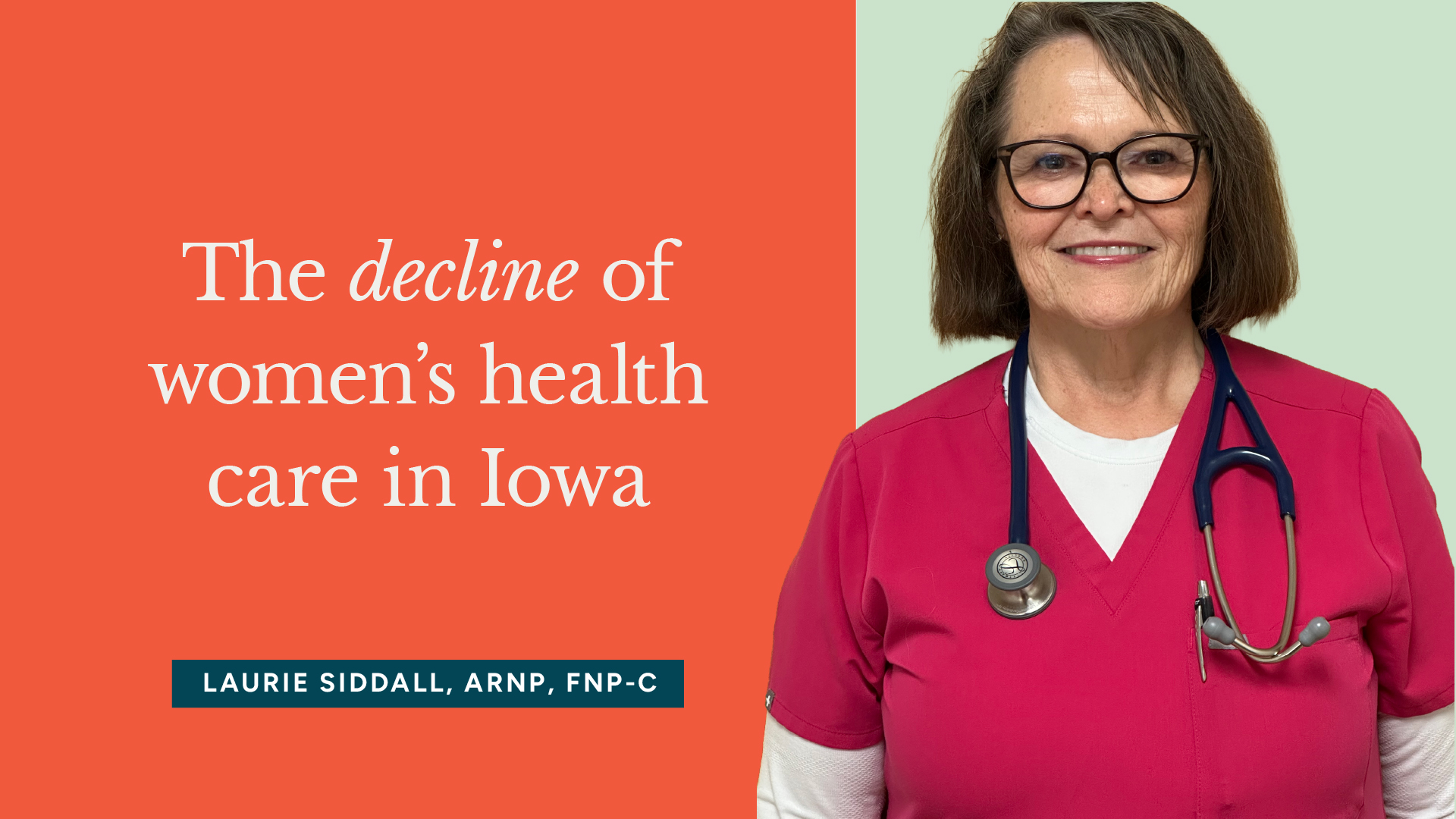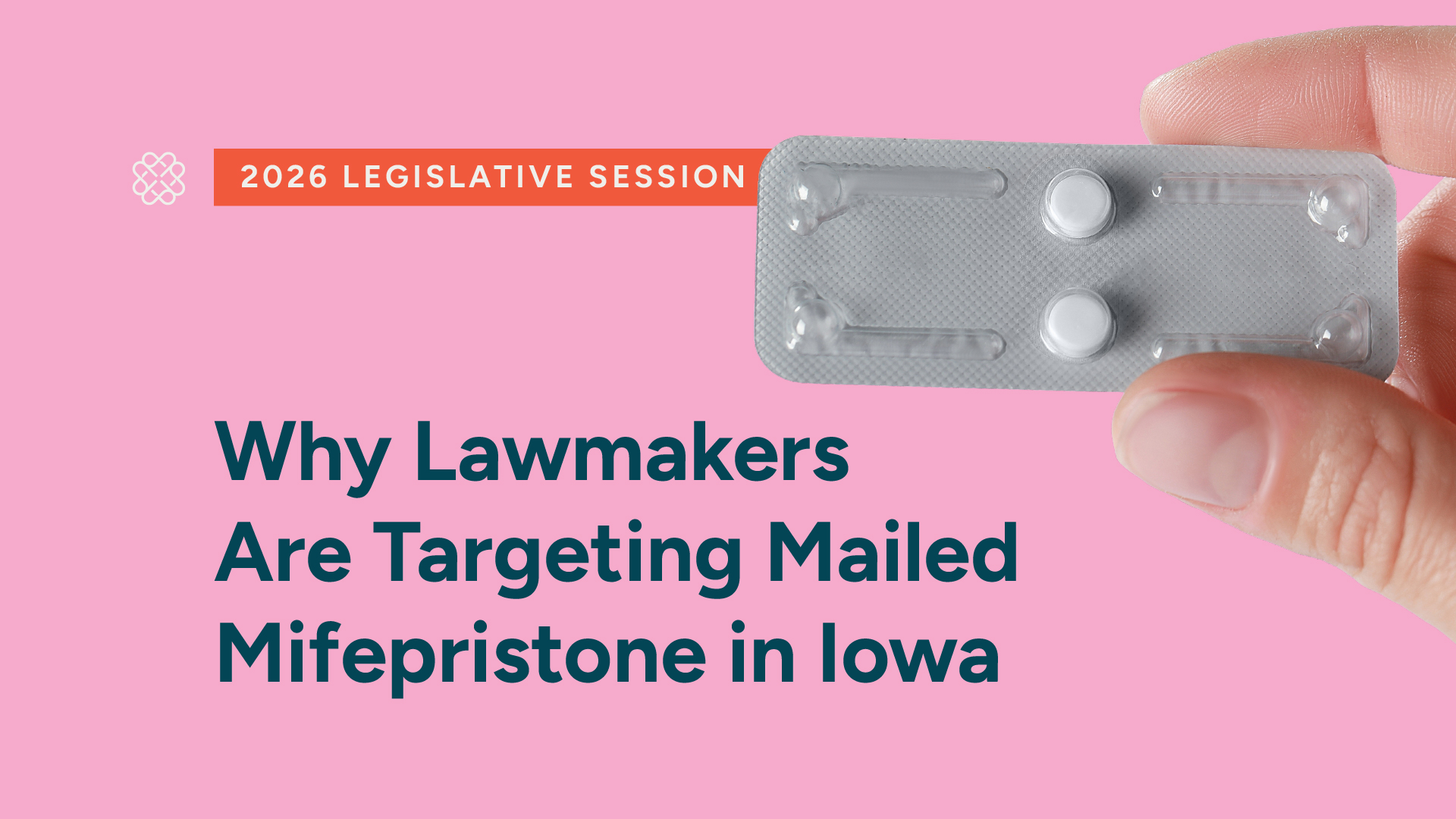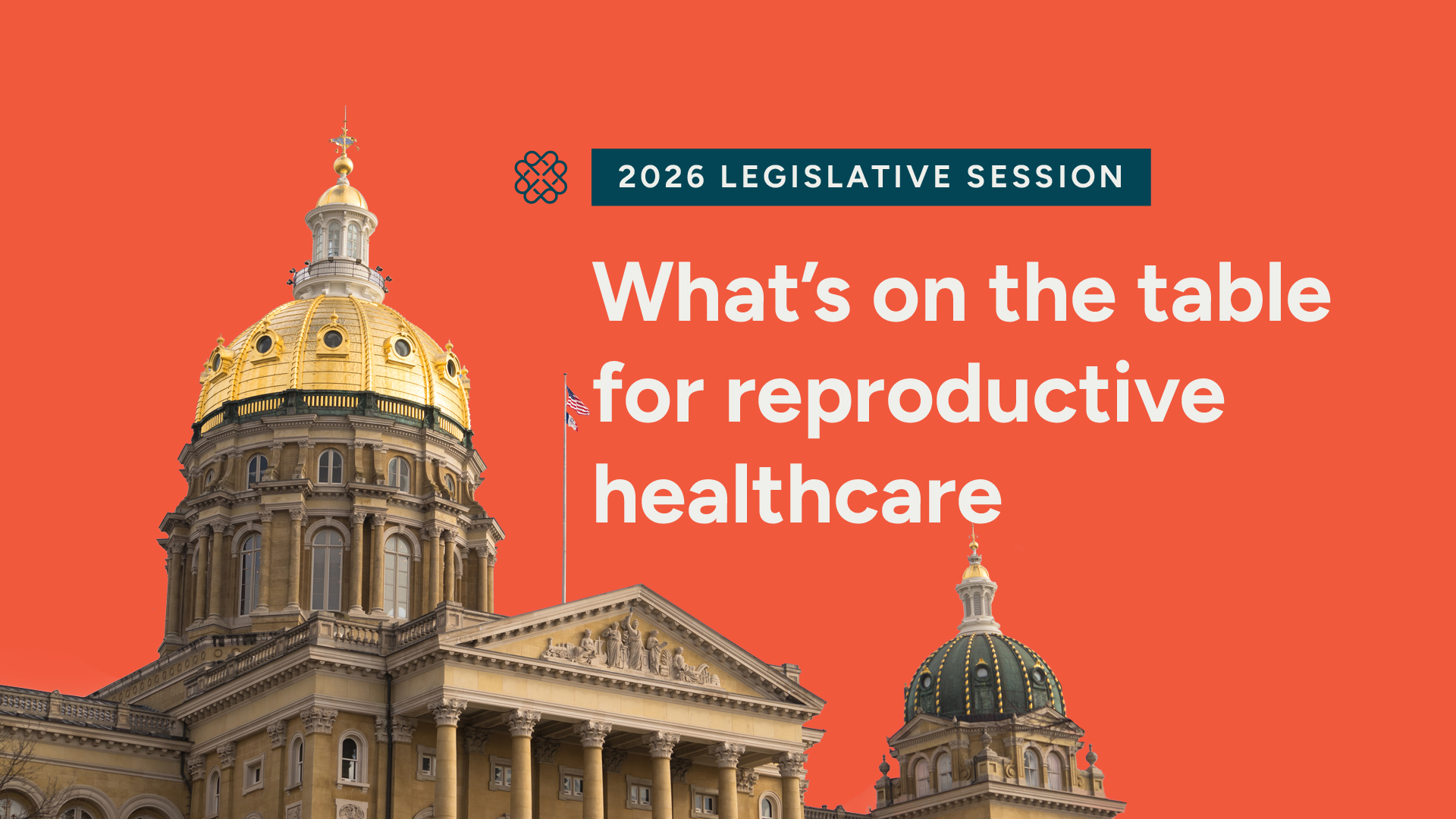
I write this article as a healthcare provider for more than 30 years, and obstetrical nurse for 18 years prior to that; a woman, a daughter, a mother, grandmother and great grandmother.
I have spent my entire career in Iowa.
I loved caring for expectant mothers as they brought new life into the world and welcomed their babies into their families. I had painful experiences of helping families adjust to the loss of their expected child prior to birth and shortly afterbirth. I have watched families receive inconceivably heart-breaking news that their pregnancy would not result in a health baby. I have cared for women whose pregnancies were going very wrong, and they needed lifesaving uterine evacuation (commonly a D&C) to save their lives. In my later career I provided family care, helping families with newborn care, children evolving through school-agers, teenagers, you adults, adult women negotiating fertility/pregnancy/menopause and aging.
Over the course of my career I have watched the availability of women’s health care and obstetrical care dwindle. The reasons are many, aging populations, reductions in birth rates, migration of younger individuals to more populous cities, cost of medical education, low reimbursement rates for providing care to populations that are primarily Medicaid and Medicare based.
I moved to Newton in 1993.
At the time of my arrival, we had 7 family physicians who provided obstetrical care. Currently we have none. Our local hospital no longer provides delivery services, causing young families in our community to travel for obstetrical care and delivery. This is a significant stressor for families, involving additional travel time, time away from work, and for many, additional costs for childcare and transportation.
One may think that having no one providing OB care is not a huge issue to a community, but the effects are greater than that. When practices no longer provide obstetrical care, there is a natural attrition of individuals who are also well versed in other areas related to pregnancy care: general women’s health care, assistance with fertility control/menstrual issues/menopausal issues and aging woman care. It increases the pressure on larger OB/GYN practices which are already having difficulty keeping up with the demands of their communities.
Our state is also in crisis regarding providing care for gynecological cancers. Currently, in our locality, there is 1 gynecological oncologist in Des Moines and 5 practicing physicians at the University of Iowa. These physicians provide care to women with cancers of the cervix, ovaries, uterus, vagina and vulva. Many of these cancers are initially worked up and cared for by generalist gynecologists, but that care is compromised as well. Just this past month I had a patient in her 70’s who needed a work up for post-menopausal bleeding, likely presenting as a form of uterine cancer based on imaging obtained in our practice. I referred her to a gynecologist who saw her within a few weeks, yet her surgical workup (D&C) is not scheduled until December (3 months away). This greatly increases the stress and anxiety for patients and their families.
Iowa women deserve better access to care.
What can be done to improve access and ensure our state is able to attract and retain well trained and compassionate providers of women’s health care?
The federal government has recently reduced the amount of money available for student loans for training physicians. This will increase the burdens on individuals seeking training and increase their financial burdens upon graduation. States need to develop loan reimbursement programs to offer to physicians and practitioners who choose to locate within our state and remain here.
To strengthen women’s healthcare in Iowa, we need to rebuild the systems that support providers, especially in rural areas. That means:
- Expanding training opportunities for OB/GYNs and family practice providers who want to offer obstetrical and gynecological care.
- Improving regional consultation and outreach between rural providers and larger medical institutions to ensure faster access to expertise.
- Supporting rural healthcare delivery by making it easier for providers to offer services closer to where patients live.
- Providing ongoing education and updates for providers with limited exposure to women’s health, so care remains consistent and current statewide.
To make women’s healthcare sustainable, Iowa must address major gaps in provider reimbursement:
- Fix the reimbursement disparity between private insurance and Medicaid.
- In many Iowa communities, about 60% of care for women of childbearing age is covered by Medicaid.
- Private insurance reimburses around $5,000 for comprehensive obstetrical care.
- Medicaid reimburses only $1,364 for the same care, a 70% reduction in revenue.
- This gap makes it financially unsustainable for providers to continue offering obstetrical services, especially in rural areas.
It is easy to see that providing services that are primarily covered by Medicaid greatly reduces the amount of income generated by practicing providers, which in turn reduces their income. Since educational costs are extensive, this can be a huge deterrent to maintaining adequate health care providers in Iowa.
It might seem we have little ability to influence this, but we still have voices and votes. It is important that we continue to communicate with our state and federal senators and representatives and let them know the needs of our families and communities. In order for our state to continue to attract young families and businesses we must be able to ensure adequate access to all levels of health care. I am confident if we maintain open dialogue, continue to be attentive to changes and needs in our communities and work together to change current patterns and trends, we can ensure the wellbeing of Iowa.
For more reproductive rights information and updates on Iowa healthcare access, visit our resources page or sign up for our newsletter.
Empower change.
Sign up for our newsletter and stay informed on reproductive healthcare issues in Iowa.




